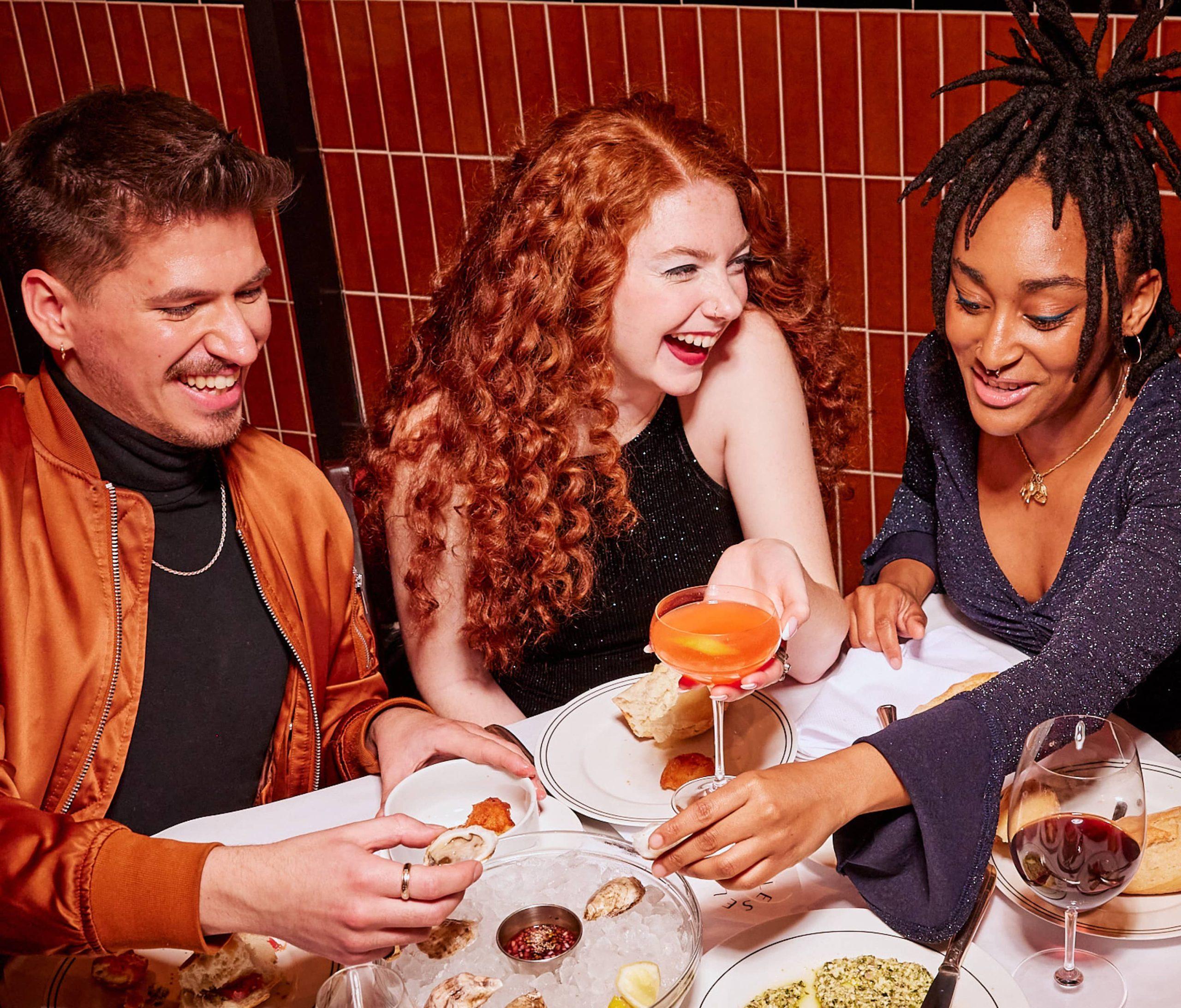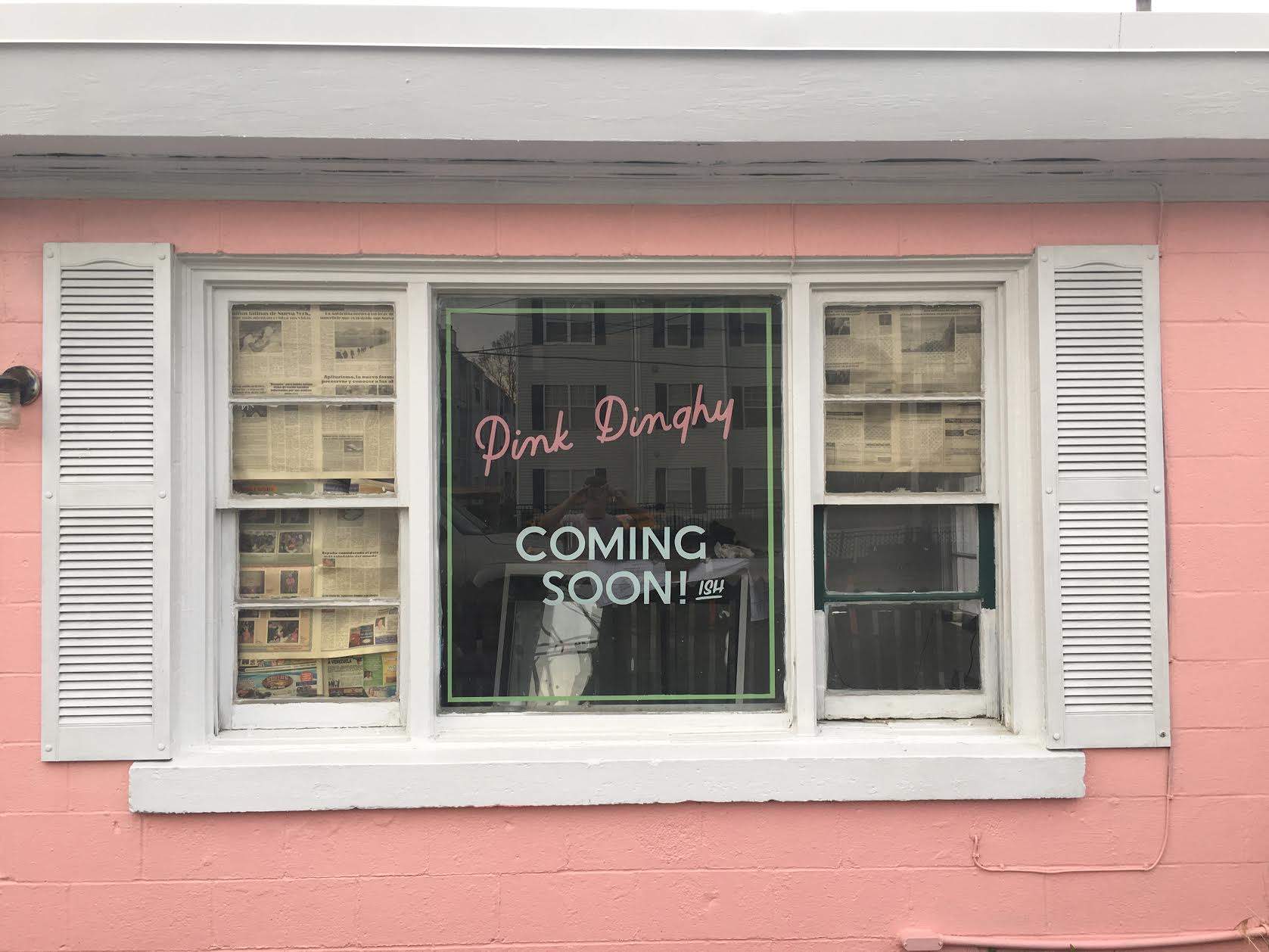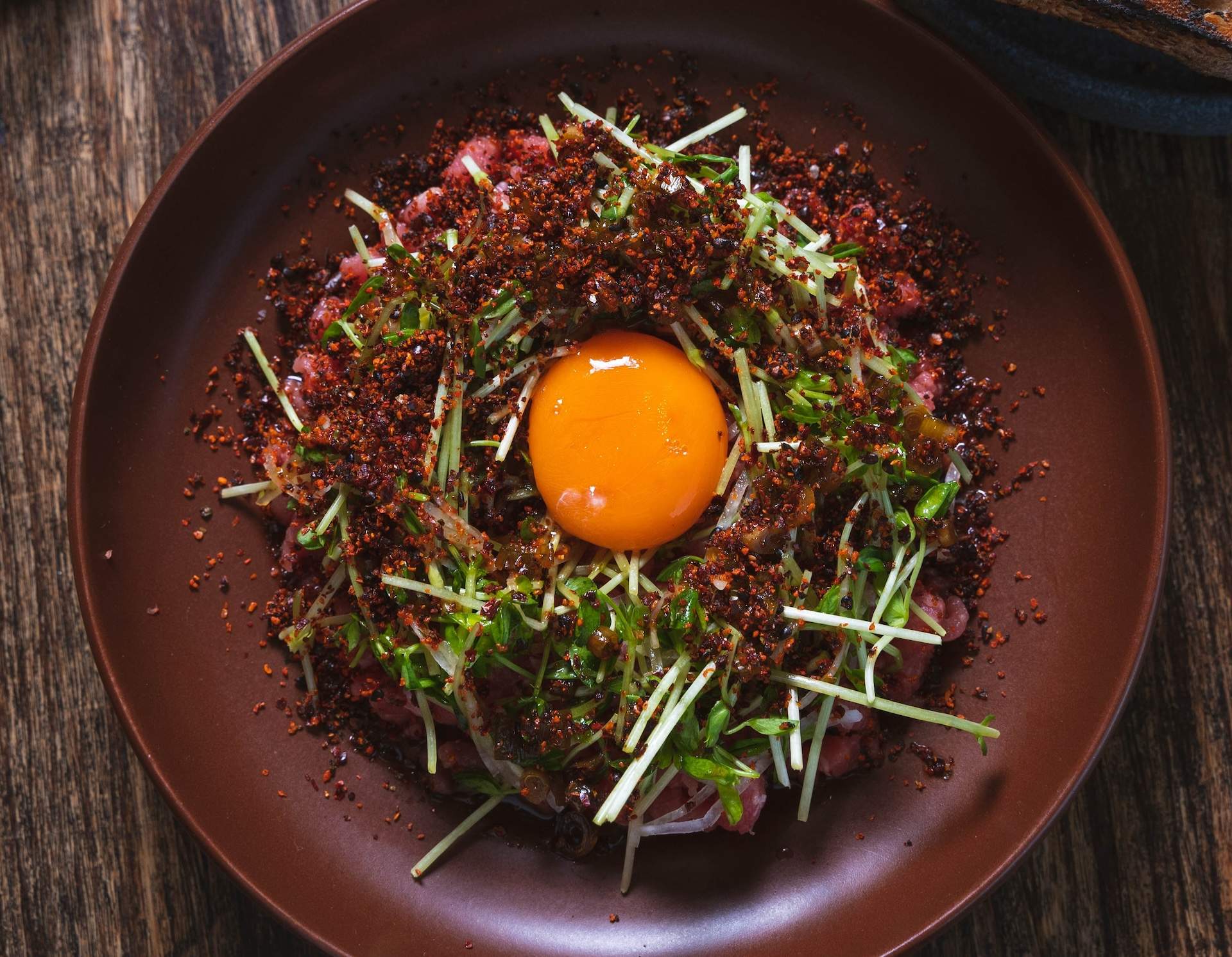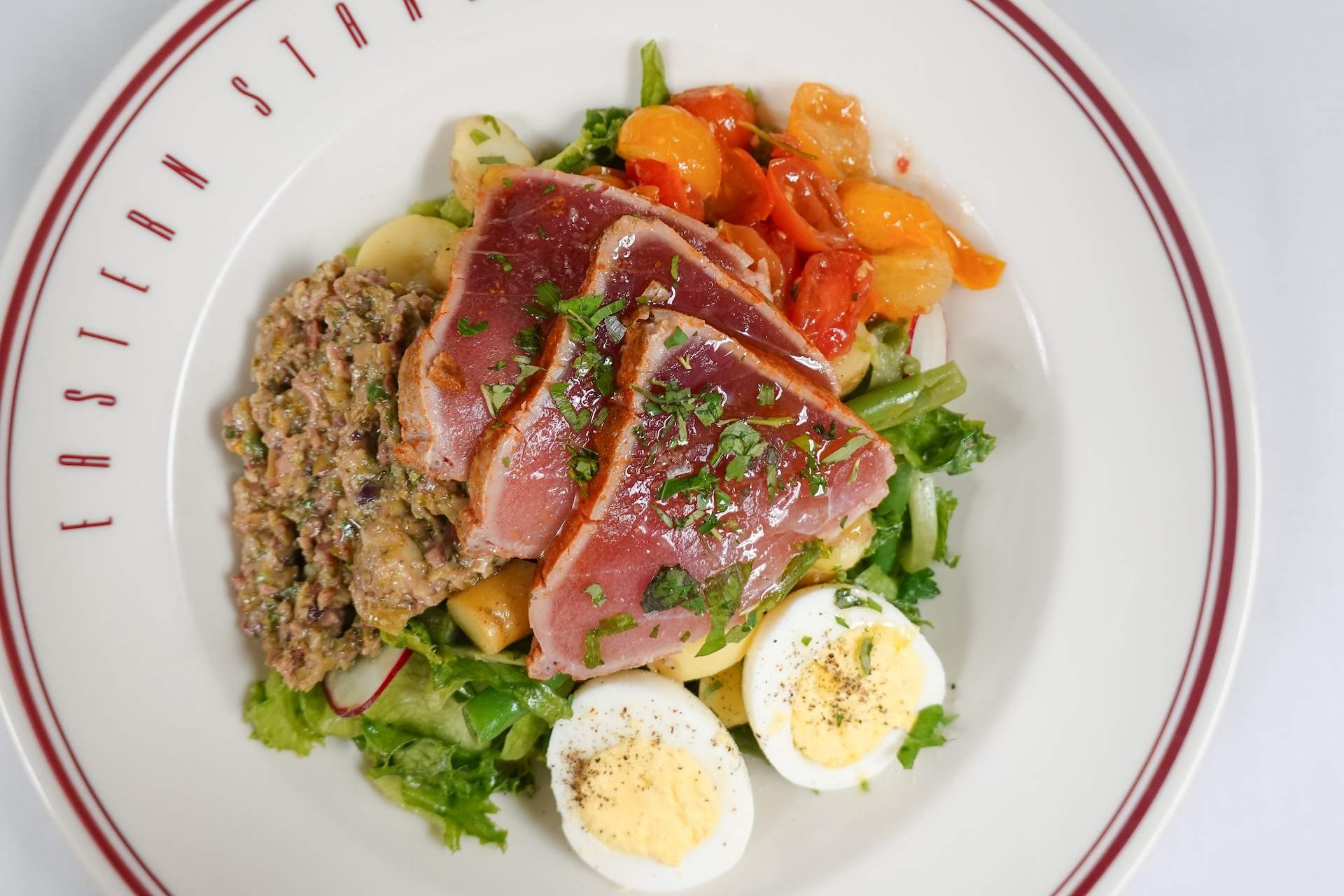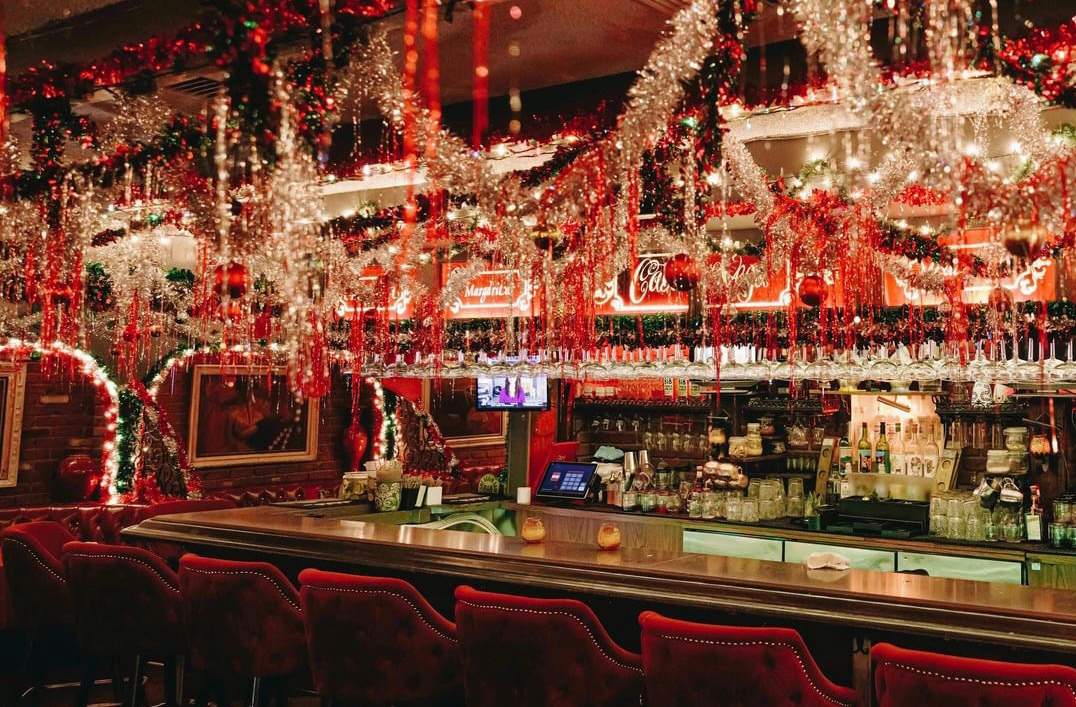For Stephanie Dietz, chef and owner of The Pink Dinghy in Virginia Beach, the pandemic was “the final boss.”
“Like a video game,” she explains. “If we could just beat the final boss, we would win the game.”
Dietz and her business partner, Chase Pittman, finally got the keys to The Pink Dinghy in October 2018 after months of jumping through hoops with the city. A contractor stole their down payment for a hood system, and an elderly lady crashed her car into the back of the building, knocking down a new addition. Then, about a month before they planned to open their doors, COVID-19 hit. The governor ordered a lockdown.
The Pink Dinghy is a Latin American restaurant in a tiny cinder building near the oceanfront. Dietz imagined it as a meeting place, where people would share small plates and enjoy beautiful wine and cocktails. “Not sandwiches in a takeout box,” she says.
The pandemic made way for other plans, but over the past year the Dinghy has opened, thrived, and emerged as a hub for the local community nonetheless. Read on for five ways Dietz and her team started a business during the pandemic and adapted for the long haul.
1. Be willing to flex your vision
COVID-19 quickly crushed Dietz’s dream of serving upscale, shareable plates in an intimate and interactive setting, but she didn’t mourn for long. In April, she developed a takeout-friendly menu featuring sandwiches and empanadas, and the team prepared to start selling to-go orders. They transformed two windows in the front of the building into takeout windows, jotting down orders out of one and slinging food from the other. The changes kept her staff and guests safe: there was not a single COVID outbreak among her team.
“If you’re not willing to throw your ego out the window, then you’re not going to survive,” says Dietz. “If you’re not down to restructure and pivot, you are going to fail.”
Dietz was initially upset about serving takeout food, but now she’ll put anything in a box. The hardest part was letting go of the hospitality they wanted to deliver on. She had given her staff copies of Danny Meyer’s Setting the Table, the industry’s classic guide to enlightened hospitality, to prepare for in-person service, and guests wouldn’t get the full experience.
Now, Dietz has added some small plates back to the menu, but the sandwiches are here to stay. She tried taking them off, but “there were riots in the streets. It’s what we’re known for now, and I’m OK with that. As long as our customers are happy.”
2. Build buzz—and relationships—from the beginning
Once they decided to open for takeout, Dietz and Pittman ran into another hurdle. The Health Department had stopped giving inspections, so they weren’t able to schedule one for over a month––and without an inspection, they couldn’t open.
That’s when they got creative. The team hosted a raffle for experiences, giving away merchandise, cooking classes, a private dinner, cocktail classes, and a wine tasting. The raffle was their way of saying, “If you invest in us, we promise to deliver.”
The effort raised $5,000, covering The Pink Dinghy’s insurance and lease, and the local newspaper published an article about it to build support. Incidentally, the article called out the Health Department, and Dietz got an inspection the next week.
3. Lean into what sets you apart
Restaurants across the country turned to retail during the shutdowns, but The Pink Dinghy’s market had been part of the concept from the beginning. They showcased specialty products the team was using in the kitchen and in cocktails, as well as wine, which proved to be a differentiator––The Pink Dinghy was one of the only local restaurants serving natural wines. “It’s new and exciting, and something we wanted to bring to the area,” says Dietz.
In August 2020 they launched a wine club, curating three bottles a month for members. Wine directors printed information packets with tasting notes to go with the wines, and once restrictions lifted the team added events, including a recent oyster tasting. Now, people who come to pick up their boxes can taste the wines with the restaurant’s wine director and talk through bottles with distributors.
“The wine club was definitely a way to interact with our customers,” Dietz explains. “Education is very important to us––we want to educate our customers so that they feel confident in buying our products.”
4. Pop-up for a cause
Before opening the Dinghy, Dietz ran a popular artisanal doughnut shop. On her second day of business, shortly after the murder of George Floyd, she decided to host a pop-up doughnut day to raise money for local organizations fighting for equity. It was so successful (they donated more than $4,000 the first day) that doughnut days became a regular Saturday and Sunday production, often fundraising for causes the team believes in.
For Women’s Day, they offered $5 slices of cake and $5 pours of wine, donating proceeds to Her Shelter, a shelter for domestic violence survivors, and for the Black Feminist Fund. In April, the Dinghy supported Bakers Against Racism with a pop-up starring local female bakers. In June, they’ll host a bake sale for Pride.
“Our customers are actually out there with pitchforks demanding that we add more doughnut days, which we’re working on,” says Dietz. “As a white person, I want to use my privilege in any way I can.”
5. Keep staff and community close
Last fall, tragedy struck The Pink Dinghy when Dietz’s business partner, Pittman, passed away. Suddenly, Dietz found herself the sole owner of the restaurant and leader of the team. She leaned on her industry friends, neighbors, and staff to make it through a difficult time.
Business owners in the area reached out to offer support. One neighborhood restaurant taught them how to use a new POS system and gave advice on insurance companies and payroll, which Pittman had previously managed. Another is on Dietz’s speed dial. She also counts her staff as family members––they work together 80 hours a week but still spend days off sharing meals.
“There were a lot of things we weren’t sure how to navigate, and knowing the community was on our side made it a bit easier,” Dietz says.
Through all of the past year’s challenges, Dietz has never thought of throwing in the towel. She’s gearing up for a busy summer at the Dinghy, renovating the patio and outfitting the kitchen, and hopes to open more restaurants down the road. The pandemic has changed her ideas about what really matters.
“Having a work-life balance is a good thing,” she says. “Treating your employees better is a good thing. Being open to change is also a great thing. [COVID] has shown us what’s important and what’s not, and how we can all be better business owners.”
